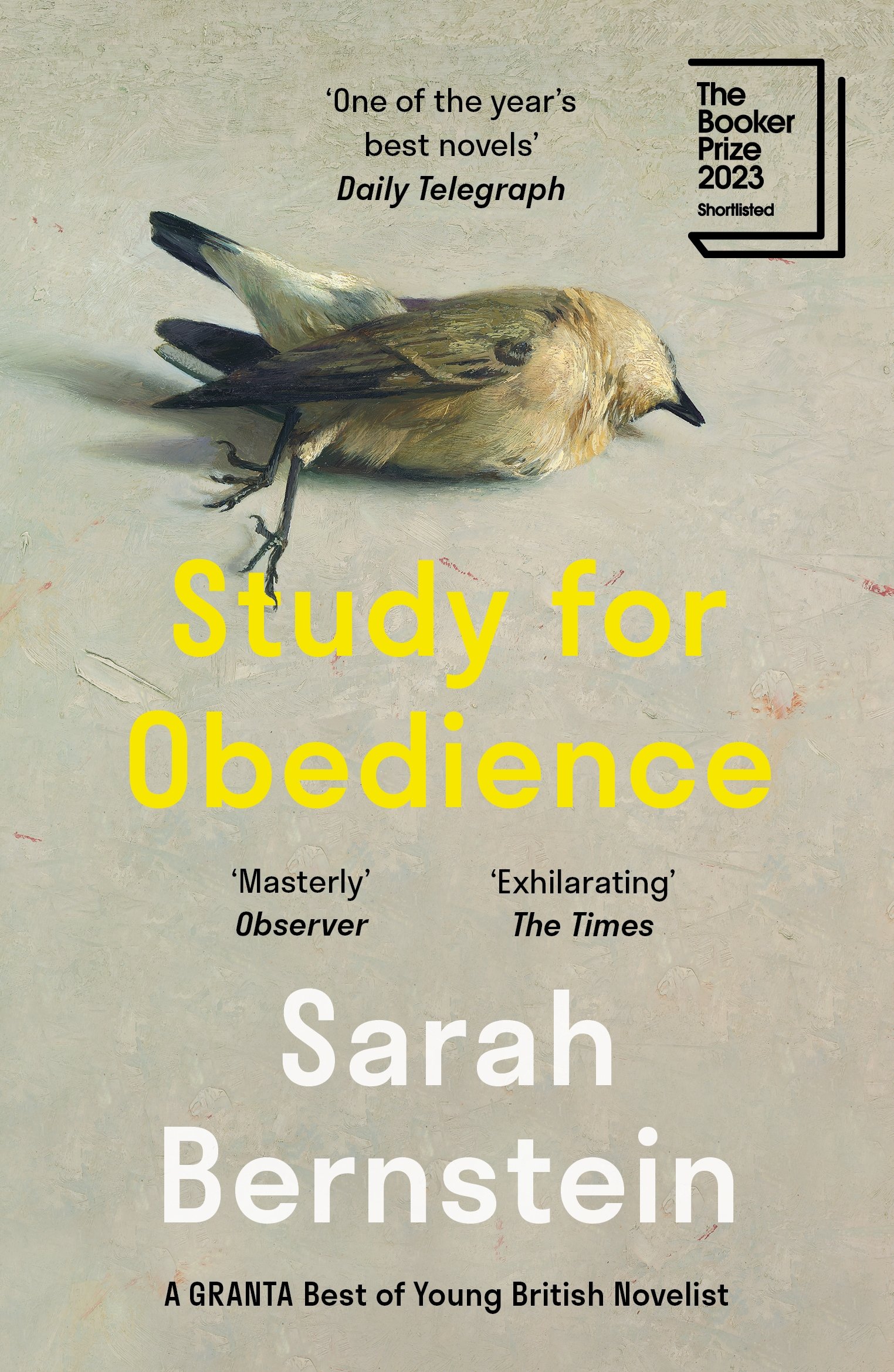Study for Obedience, Sarah Bernstein
“An intriguing, eerie novel, reminiscent of uncanny Victorian stories in which rules are implemented without explanation, but suffering must be witnessed to be validated".”
Nine years after her debut novel was released, Sarah Bernstein’s place as a fierce literary talent was cemented with both a Booker Prize shortlist nomination and a spot on the Granta Best of Young British Novelist list. A further endorsement comes from nb, as it was selected as May’s book group. Study for Obedience is an intriguing, eerie novel, reminiscent of uncanny Victorian stories in which rules are implemented without explanation, but suffering must be witnessed to be validated.
A woman moves to a remote country to care for her ailing brother who is one of many siblings – so many she scarcely dares remember – our first indication of a dark family history and repressed memories of servitude. In this unnamed town, she is isolated and, despite her intelligence and ancestral roots, cannot speak the local dialect. The form is plotless at times and domestic tasks are repeated under the watchful eye of her brother, whose brutality is reflected in the natural world, where animals are at the behest of one another’s needs and strength.
The narrator tries to make sense of the seemingly unexplainable events that befall the townspeople, not just as a coping mechanism for navigating an unfamiliar landscape, but as an attempt to understand how these strangers think – an exercise in empathy that unfortunately backfires when she is blamed for the mysterious deaths of animals and crops.
The mastery is in Bernstein’s vocabulary and use of indirect discourse, embedding the narrator’s thoughts in her observations and surroundings, only compounding her loneliness in the face of accusation. The book is purposefully driven by miscommunication and the absence of language, but Bernstein manages to create subtle but sweeping rhetorical phrases, with complex thoughts feeling intimate and hushed. She has said that to write she follows ‘the sound of a line, like catching a musical phrase’ only then does she try and ‘follow the logic of the sound.’ There is a musicality in her technique as whole phrases beg to be read aloud: ‘I was caught in the machinery of certain manias and maladies, the engines of their compulsory performance urging me on’.
Bernstein is clearly an absorbent author, drawing on her surroundings living in the Scottish Highlands, as well as an academic knowledge of literature and folklore. Bernstein draws too on the work of Portuguese artist Paula Rego, whose work focussed on gender discrimination and political defiance – the very antithesis of obedience. As the narrator discovers her agency it seems that her ‘obedience had taken on a kind of mysterious power.’ And it is undeniable – there really is a mysterious power to Bernstein’s writing, with Study for Obedience presenting a compelling portrait of belonging and integrity in the face of suspicion and cruelty.
Editorial Picks




